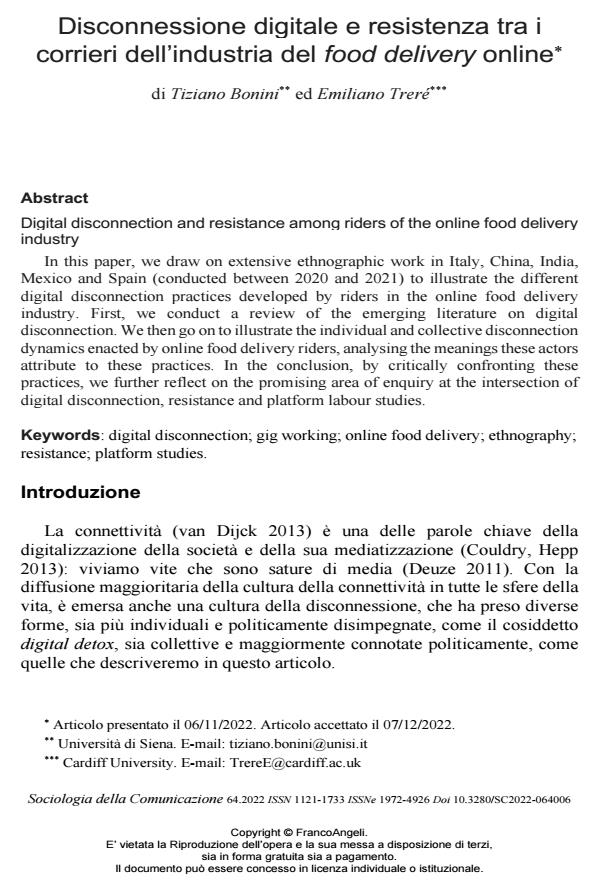Disconnessione digitale e resistenza tra i corrieri dell’industria del food delivery online
Titolo Rivista SOCIOLOGIA DELLA COMUNICAZIONE
Autori/Curatori Tiziano Bonini , Emiliano Treré
Anno di pubblicazione 2023 Fascicolo 2022/64
Lingua Italiano Numero pagine 20 P. 98-117 Dimensione file 447 KB
DOI 10.3280/SC2022-064006
Il DOI è il codice a barre della proprietà intellettuale: per saperne di più
clicca qui
Qui sotto puoi vedere in anteprima la prima pagina di questo articolo.
Se questo articolo ti interessa, lo puoi acquistare (e scaricare in formato pdf) seguendo le facili indicazioni per acquistare il download credit. Acquista Download Credits per scaricare questo Articolo in formato PDF

FrancoAngeli è membro della Publishers International Linking Association, Inc (PILA), associazione indipendente e non profit per facilitare (attraverso i servizi tecnologici implementati da CrossRef.org) l’accesso degli studiosi ai contenuti digitali nelle pubblicazioni professionali e scientifiche.
In this paper, we draw on extensive ethnographic work in Italy, China, India, Mexico and Spain (conducted between 2020 and 2021) to illustrate the different digital disconnection practices developed by riders in the online food delivery industry. First, we conduct a review of the emerging literature on digital disconnection. We then go on to illustrate the individual and collective disconnection dynamics enacted by online food delivery riders, analysing the meanings these actors attribute to these practices. In the conclusion, by critically confronting these practices, we further reflect on the promising area of enquiry at the intersection of digital disconnection, resistance and platform labour studies.
Parole chiave:digital disconnection; gig working; online food delivery; ethnography; resistance; platform studies.
- Algoritmi e vita quotidiana: un approccio socio-comunicativo critico Giovanni Boccia Artieri, Roberta Bartoletti, in SOCIOLOGIA DELLA COMUNICAZIONE 66/2024 pp.5
DOI: 10.3280/SC2023-066001
Tiziano Bonini , Emiliano Treré, Disconnessione digitale e resistenza tra i corrieri dell’industria del food delivery online in "SOCIOLOGIA DELLA COMUNICAZIONE " 64/2022, pp 98-117, DOI: 10.3280/SC2022-064006